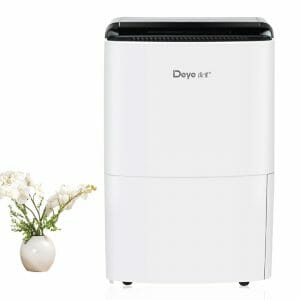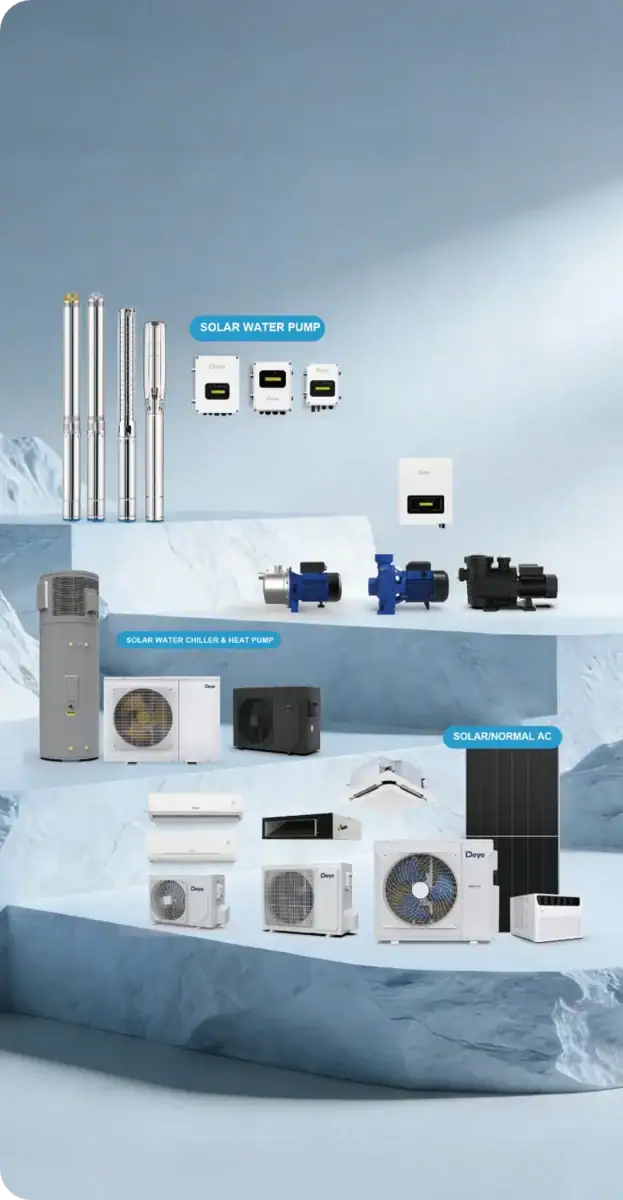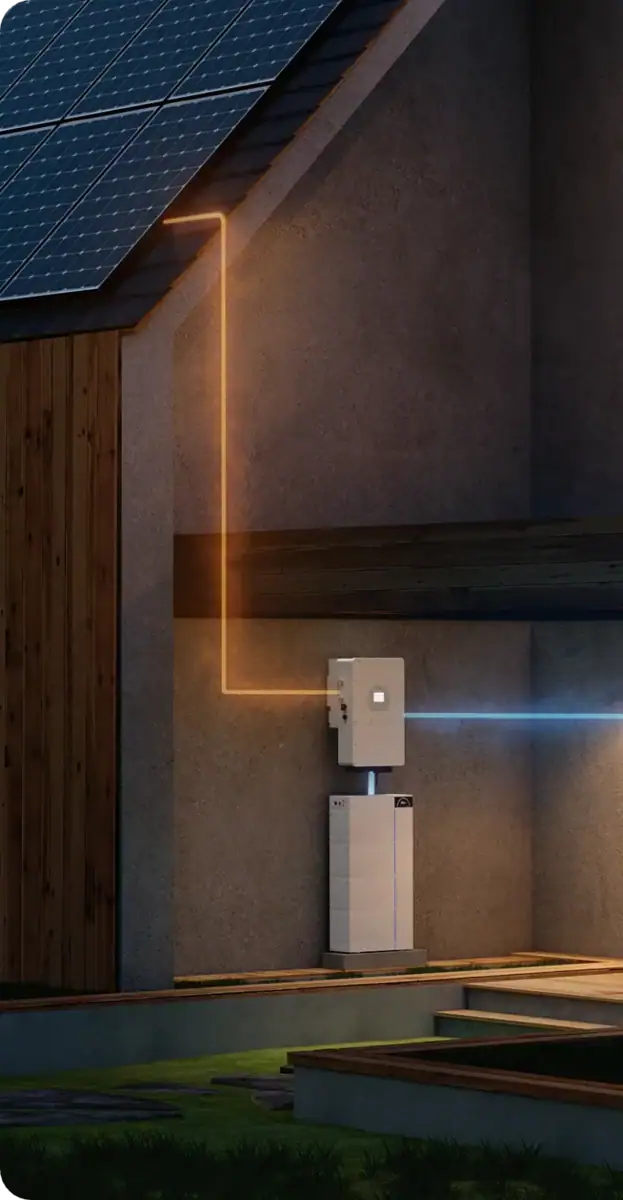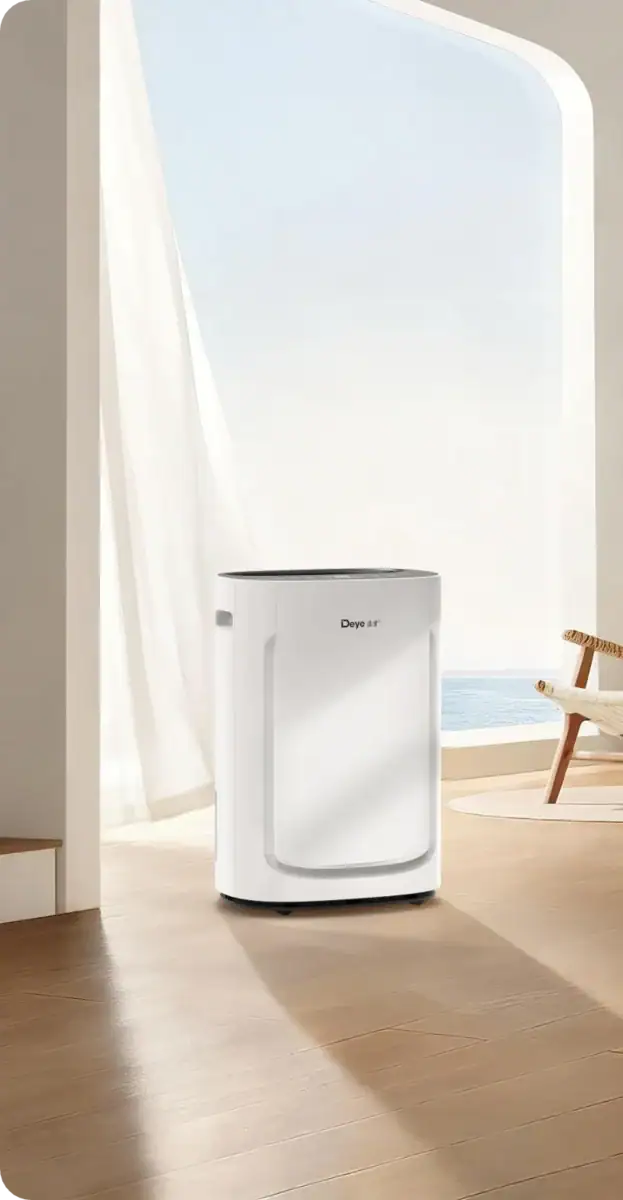Using a dehumidifier in your home or business place can significantly improve the air quality. If the air feels sticky or damp, a dehumidifier can reduce the moisture level, so your home feels more comfortable and safe.
You can also use a dehumidifier in commercial properties. Today, using a dehumidifier also means your HVAC system can run more efficiently.
Dehumidifier Defined
Although a dehumidifier removes humidity from indoor air, there are several approaches to extract moisture or dampness from your environment. And there are different types of dehumidifiers. The size of your space and humidity level will determine the kind you should get. Here are some types of dehumidifiers.
Heat Pump Dehumidifier
As the name implies, the heat pump dehumidifier uses a heat pump, coil system, and fan to remove excess moisture and control the humidity level in your environment
Dehumidifying Ventilator
It uses an exhaust fan and sensor to effectively expel air and is commonly used in basements, attics, and crawl spaces.
Chemical Absorbent Dehumidifier
It is popularly known as a desiccant dehumidifier and is used in residential units. It consists of gel, powder, and desiccant-type cartridges.
Benefits of a Dehumidifier
Dehumidifiers provide many benefits for your space and its occupants, including your pets. Here are some :
Mold Prevention
Mold in the home can be a nightmare for homeowners. It can cause natural materials to break down ( biodegradation). Mold can also cause severe damage to your furniture, food items and even affect your health. Some symptoms of mold allergies include eye and throat irritation, itchy throat, skin rashes, sneezing, coughing, etc.
Excess moisture in the air allows the growth of mold to thrive. This is why a dehumidifier is effective as it removes moisture from the air.
Improve Air Quality
A few things are essential to our well-being. Eating balanced meals, physical exercise, living in a hygienic environment, and breathing fresh air. The air quality in your home can be measured by the absence of toxins and the air humidity level.
Air purification is an excellent way to remove harmful substances from the air. It’s unlikely to achieve good air quality in your home if the humidity is high.
Eliminates Dust Mites
Dehumidifiers play an essential role in improving the overall indoor air quality. More so, it helps to eliminate dust mites. Household dust mites are linked to some allergy-related problems and asthma. By creating an unfavorable environment for these dust mites, you can reduce their presence in your home.
Provides Comfort
When moisture is removed from your space, you feel more comfortable and don’t need to crank up your air conditioner. In fact, you can even save some energy bills as your AC is supported by the dehumidifier.
Things to Consider When Shopping for a Dehumidifier
It’s necessary to carry out some research before making any kind of purchase. Here are a few things to keep in mind when shopping for a new dehumidifier for your home.
Different Sizes Available
Before making the big buy, find out the size of the dehumidifier suitable for your space. The pint capacity size will determine the amount of moisture that can be removed.
Large Rooms
For big rooms, including living areas, a dehumidifier with a 60-pint capacity is recommended.
Mid-sized Rooms
For medium-sized rooms with excessive humidity, a dehumidifier with 40-60 pint capacity is recommended.
Small Room
A small-sized dehumidifier for lightly damp or small rooms like bathrooms, laundry rooms are recommended.
Auto Defrost System
The automatic defrost system is a must-have feature that can save you time when it comes to maintenance. It allows your dehumidifier to operate without frost damage. If you are frequently away from home, this feature is a must-have.
Continuous Drainage
This can significantly reduce maintenance while dehumidifying your space. A dehumidifier with a large capacity is also a plus, allowing continuous drainage.
Condensate pumps are excellent for a location with different elevations. They can work to pump the liquid vertically and horizontally to the closet’s outlet.
Restarts Automatically
The automatic restart feature saves you the hassle of restarting your dehumidifier after a power cut. This feature ensures the dehumidifier operates on the previously configured settings as soon as power is restored.
Automatic Shut Off
Most dehumidifiers come with this energy-saving feature to detect the humidity and shut down once the desired humidity is achieved. In addition, units with this feature will automatically shut down once the tank collector is full.
Easy to Move
Today, most dehumidifiers come with durable rolling wheels and handles to ensure users can easily move the dehumidifier from one place to another without hassle.
When is the Best Time to Use a Dehumidifier
Depending on the climate in your location, you may need to use a dehumidifier all year round to support indoor air quality.
The summer months can bring higher humidity levels, leading to too much air moisture indoors, resulting in mold, bacterial growth, and mildew. Here are a few signs that your home needs a dehumidifier.
Damp, sticky, or stuffy rooms
Window condensation
Fuggy or musty smell
Pest problems
Increase mold or mildew
Warping wood
Skin irritation
Allergy problems
It’s best to use a dehumidifier before the humidity begins to affect your environment. Humid air tends to make the air feel warmer. Consequently, your air conditioner or other cooling appliance may not cool as you would prefer. So, the dehumidifier also helps your HVAC run efficiently and makes your home cooler and more comfortable.
How Often Should I Use a Dehumidifier
This will depend on several factors, such as the climate in your location, the size of your home, how ventilated your space is, and the indoor humidity level.
However, to ensure energy efficiency, you should run a dehumidifier for at least 12 hours daily. This will enable you to remove the moisture from the air without causing a significant increase in energy costs.
If a dehumidifier cannot improve the humidity levels in your home, you may need to check for plumbing problems or that the windows and doors are properly sealed.
Finally, anytime your home or business place feels humid, it is time to use your dehumidifier. You can visit our website to see different types of dehumidifiers and make the right choice for your space.










